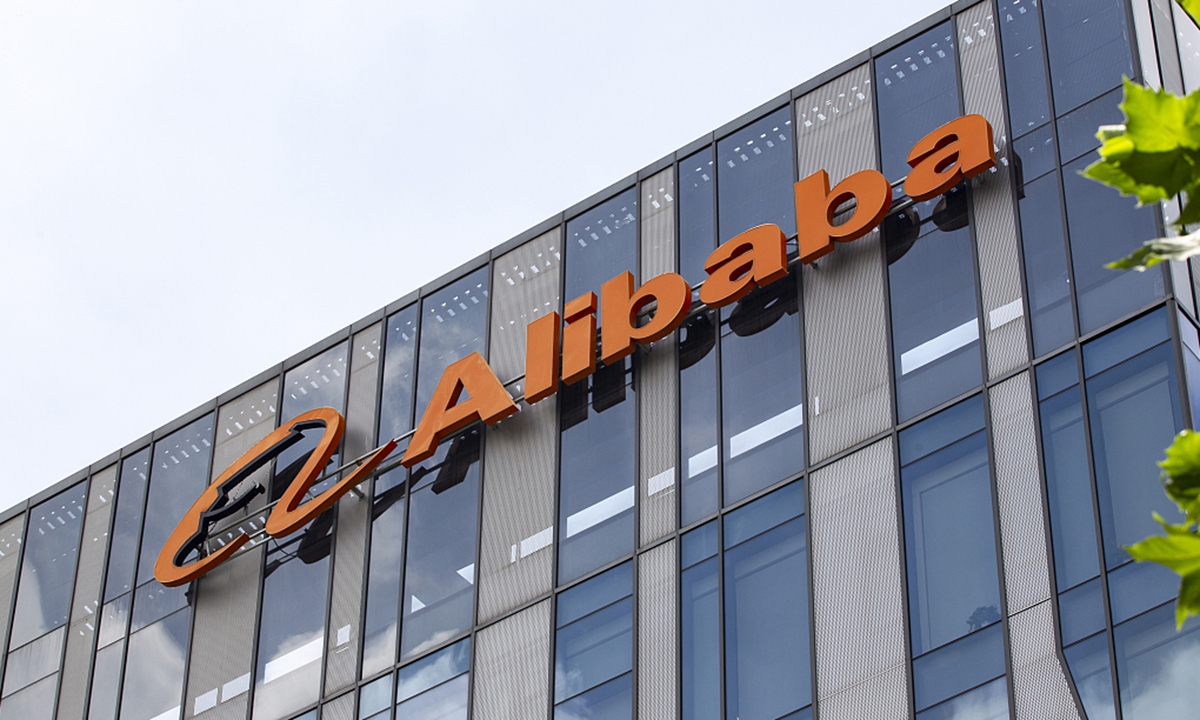Alibaba pursues primary listing on HKEX to ‘broaden investor base and facilitate liquidity’

Alibaba Photo:VCG
Alibaba Group said on Tuesday that it is pursuing primary listing on the Hong Kong Stock Exchange and will become dual-primary listed in the US and Hong Kong after completion, a move that will help the company expand its current market liquidity in Hong Kong and gain initiative amid a China-US audit dispute, experts said.
Alibaba said it is applying to change its current listing status to a primary listing on the Main Board of the Hong Kong Stock Exchange (HKEX). Alibaba currently maintains a secondary listing on the Main Board of the Hong Kong Stock Exchange, according to its notice from HKEX on Tuesday.
The change is expected to become effective prior to the end of 2022. Upon completion of this change, Alibaba will become a dual-primary listed company on the New York Stock Exchange in the form of American Depositary Shares (“ADSs”) and on the Hong Kong Stock Exchange in the form of ordinary shares, Alibaba said.
Alibaba’s move to seek a primary listing in Hong Kong is in line with its secondary listing in Hong Kong in November 2019, Dong Shaopeng, an expert advisor at the China Securities Regulatory Commission told the Global Times on Tuesday.
“After this primary listing, the size of Hong Kong's public float is expected to be expanded to match that of the US,” Dong said.
Since Alibaba’s secondary listing in Hong Kong in November 2019, there has been a significant increase in its public float on the Hong Kong Stock Exchange.
In the six months ended June 30, 2022, the average daily trading volume in Hong Kong was approximately $700 million, compared to an average daily trading volume of approximately $3.2 billion in the US.
Alibaba said it expects that its dual-primary listing status would allow it to broaden its investor base, and facilitate incremental liquidity, in particular expand access to China- and other Asia-based investors.
The company’s ADSs listed in the US and the shares listed in Hong Kong are fungible, and investors can continue to choose to hold their shares in the form of ADSs traded on the New York Stock Exchange or ordinary shares traded on the Hong Kong Stock Exchange.
In recent years, in order to fend off political risks in the US, many Chinese firms listed in the US including Zhihu, KE Holdings, XPeng and Li Auto have completed dual-listings in Hong Kong.
The advantage of dual listing is that if the financing environment or other environment deteriorates in one place, it can calmly exit and make full use of the financing environment and financing resources in another major listing location, Dong said.
“Many US-listed Chinese stocks have listed in Hong Kong with a dual listing scheme, so that listed companies can have the initiative in hands amid the China-US audit dispute,” Dong said.

